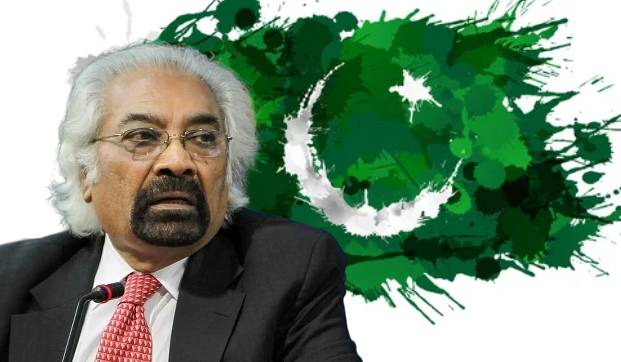Paromita Das
New Delhi, 22nd September: When Sam Pitroda, chief of the Indian Overseas Congress, remarked that Pakistan “feels like home,” it wasn’t just a rogue comment. Instead, it was a window into the Congress party’s deeper political DNA—a tradition of appeasement and misplaced priorities that, for decades, has sidelined Bharat’s national interest in favor of sentiment and expediency. From partition’s dark corridors to today’s controversies, Congress’s legacy is marred by a consistent tilt towards those who undermine Bharat’s unity and security.
An Old Habit: Appeasement Since Independence

To understand why Pitroda and other Congress voices often appear more comfortable in hostile territory than at home, one must revisit the earliest years of Independent Bharat. The infamous Lucknow Pact and Congress’s support of the Khilafat Movement signaled a willingness to make communal concessions, meant to buy peace but ending up deepening divisions. Instead of standing firm on nationalist principles, Congress often opted to pacify factions—planting the seeds for the trauma of partition and the enduring malaise of “minority-first” politics.
This appeasement continued to echo through later decades. Whether empowering leaders like Yasin Malik—later convicted for terrorism and the exodus of Kashmiri Pandits—or demanding clemency for Afzal Guru and Yakub Memon, Congress routinely put emotion, optics, and political calculation above the uncompromising pursuit of justice and national security.
Weakness in the Face of Hostility

Nowhere was this posture more visible than during the UPA years. After the catastrophic 26/11 Mumbai terror attacks, an entire nation mourned and raged, demanding swift retribution against Pakistan and its terror sponsors. Instead, the Congress-led government limited itself to exchanging dossiers, lighting candles, and offering platitudes about peace and dialogue. Even as masterminds like Hafiz Saeed mocked Bharat from across the border, decisive action was always deferred in favor of process and protocol.
Contrast this to later governments that made headlines for surgical strikes and air raids on terror camps. The difference was stark and left an indelible mark on Bharat’s psyche: Congress, when tested most, often flinched—choosing perceived global approval over local dignity and security.
Dialogue with the Enemy: A Perpetual Soft Corner

Congress’s foreign and domestic policy record is riddled with instances of treating national enemies and separatists with unwarranted legitimacy. Leaders opened doors for dialogue with convicted terrorists, raised doubts over security force encounters, and questioned Bharat’s own anti-terror operations. When Salman Khurshid likened Hafiz Saeed’s rhetoric to that of Bharatiya religious leaders, or when Digvijay Singh parroted conspiracy theories about the Batla House encounter, the party’s discomfort in defending the nation over its detractors was made clear.
Organizing Around Expediency, Not Principle

Congress’s repeated indulgence of divisive elements is no accident; it is a symptom of a deeper malaise. Whether by defending the indefensible in Parliament or hesitating to name Pakistan as a terror state, the party’s decisions reveal a strategy centered on appeasement and optics, not on principle or nation-first governance. The ultimate price has been paid by ordinary Bharatiya—by Kashmiri Pandits rendered refugees, by soldiers facing heightened threats, and by a nation hoping for stronger, clearer leadership.
Why Bharat Deserves Better

It’s time for Congress to recognize that appeasement is not a substitute for patriotism. The people of Bharat want leaders who will defend national interest with clarity and courage—not ones who equivocate in the face of grief and aggression. This is not to deny the importance of diplomacy or the need for compassion in governance. But when sentimentality overshadows sovereignty, the nation suffers.
Pitroda’s comment is not just a gaffe—it is symptomatic of a party adrift from the spirit of 1947, when freedom was wrested from colonial rule at great personal cost. Each time Congress chooses comfort with adversaries over the pain of its own citizens, it betrays not just the victims of terror, but Bharat’s own foundational values.
The Road Back to National Interest
National security cannot coexist with chronic appeasement. The Congress party’s instinct to romanticize dialogue with Pakistan and coddle separatists, even when the wounds of terror are raw and recent, only deepens mistrust. If Bharat is to fulfill its potential as a secure, united nation, it must demand more from every political force—especially those that once claimed to lead its freedom struggle.
Bharat’s future lies with those who put the tricolor above all else—not with those forever finding comfort beyond the nation’s borders.
The post Feeling ‘At Home’ in Pakistan: The Congress Dilemma Unveiled appeared first on Global Governance News- Asia's First Bilingual News portal for Global News and Updates.



